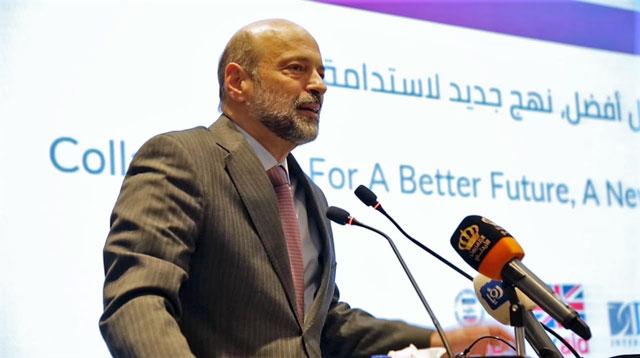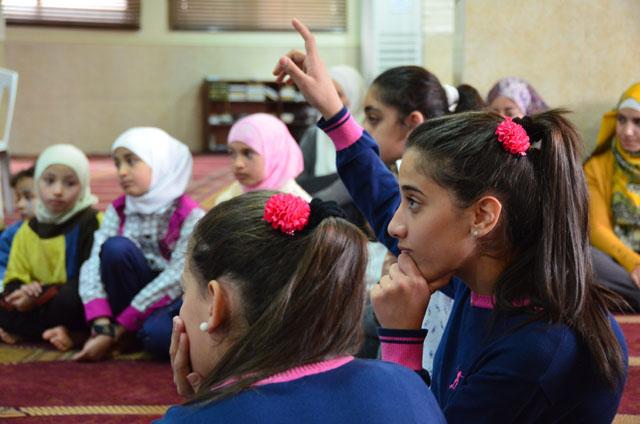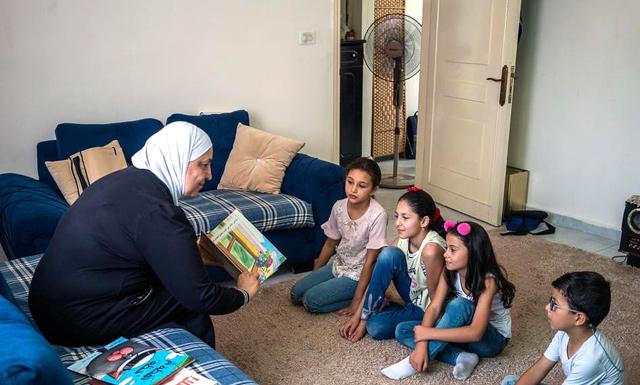You are here
Read aloud programme fosters grassroots solution to education
By Saeb Rawashdeh - Aug 16,2018 - Last updated at Aug 16,2018
AMMAN — Started in 2006 as an initiative to boost reading in urban and rural Jordanian communities, We Love Reading (WLR) has now reached 400,000 children in Jordan, opened around 4,000 libraries, delivered some 250,000 children books and conducted more than 140,000 reading sessions, according to WLR founder Rana Dajani.
The goal of WLR is to provide “read aloud programme” to foster love of reading among children”, empowering communities through activism of local volunteers from MENA and the rest of the developing world”, according to its website.
“We will realise this goal by engaging our workforce in creating partnerships optimising our programme and model, utilising technology and continuous research,” Dajani told The Jordan Times, adding that WLR currently has libraries in 42 countries ranging from the US and Canada to Germany, the UK and Macedonia.
Dajani, who is also an Associate Professor of Molecular Cell Biology at the Hashemite University, has worked with her team to develop a model providing a “practical, cost efficient, sustainable, grassroots approach”, which involves women and the community to increase reading levels among children aged between four and 10 by focusing on the read aloud experience.
Training local women and youth to read books that are age-appropriate and neutral in content is also part of the programme, she underlined, noting "the women receiving training are required to ‘pay it forward’ by sharing newly acquired knowledge and training another woman to become a reader, creating a domino effect”.
WLR has published 32 books for children on topics such as ecology and environmental issues, social inclusion of refugees, women and people with disabilities.
“We also developed a mobile application to create a virtual community to connect WLR ambassadors around the world for sustainability and quality as well as monitoring and evaluation,” Dajani said, noting that the initiative cooperates with a number of entities including the Ministry of Culture, authors and illustrators of children books, Jordanian publishers, while UNHCR, UNICEF, Save the Children and Norwegian Refugee Council are some of its international stakeholders.
According to Dajani, WLR is an example of successful bridging of research and practice as well as a model of grassroots people finding the root cause of a problem and developing a solution that works.
“This guarantees ownership, sustainability and effectiveness of the programme, and that it is a practical solution which addresses the root cause of potential problems because the local people best know why the problem exists and how to solve it,” the professor said, stressing, that they can always benefit from experts to advise them.
In her proactive model, Dajani brings together researchers, both local and international, who listen to locals first instead of coming with premade solutions.
“Experts from abroad can help by training and building the capacities of local people so that they have the skills to develop their own programmes and/or do their own research,” she pointed out.
She said WLR now plans to focus on social emotional learning as "reading aloud to children provides a tool for building resilience and improving psychosocial well-being in children and adults in coming period".
"Early childhood is the most important phase in a child’s development, and reading to children at a young age is fundamental in the development of a stronger, healthier mind," Dajani said, adding that, during the first years the brain is being formed and neurons are making connections that must be maintained, otherwise the connections between neurons disappear.
"Studies have included research on how the WLR programme affects levels of empathy in children and on the psychosocial well-being of children in Jordan’s Zaatari camp," Dajani underscored.
In 2018, WLR received two international recognitions: the World Literacy Award and the Klaus Jacobs Award.
Related Articles
AMMAN — Prime Minister Omar Razzaz on Tuesday expressed hope that the “We Love Reading” (WLR) initiative would play an influential role in c
A small Jordanian read-aloud group for children has snowballed over the years, spreading all over the country and trickling out of its boundaries, creating umpteen mobile libraries and an army of storytellers.
AMMAN — Rana Dajani, a Jordanian scientist and founder of local organisation “We Love Reading” has been named as this year’s UNHCR Nansen Aw














